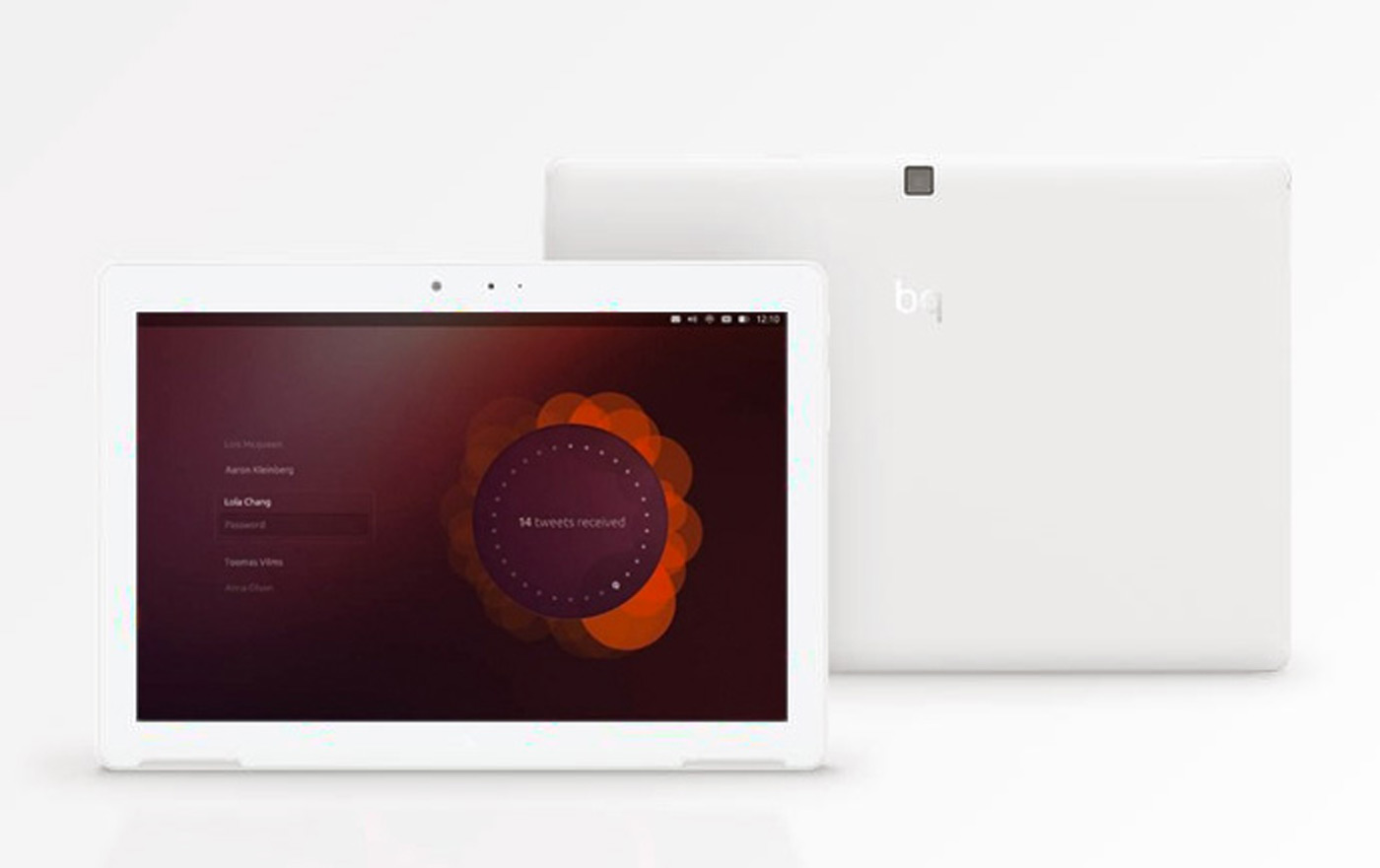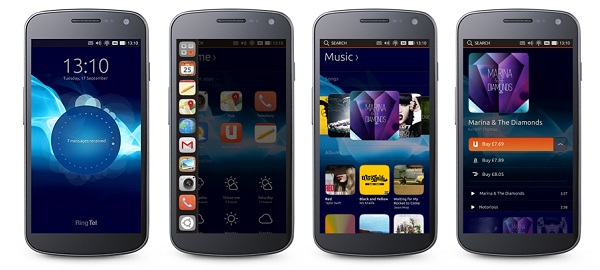Computers, with their bulky hardware, are so yesterday! What’s the point of using them if you can achieve similar results by plugging peripherals into a tablet? Canonical, who have just launched the world’s first tablet running Ubuntu, means to shine new light on our computing devices.
Having failed to crowdfund the Ubuntu Edge smartphone in 2013, Canonical didn’t give up on the subject and announced that it would unveil several smartphones running a mobile version of its OS at MWC 2014. Now they’ve decided to take things even further, and they teamed up with Spanish mobile manufacturer Bq to launch Aquaris M10, a tablet that can be easily hooked up to a monitor, and then paired to a Bluetooth keyboard and mouse, in order to successfully replace a PC.
It looks like Microsoft is not the only one who’s trying to run the same operating system and ultimately, the same core code on both the mobile and desktop platforms. Canonical’s BQ Aquaris M10 tablet has a user interface that’s clearly different from the smartphone version. Once you connect the tablet to a monitor, the UI changes yet again, and turns into the familiar one of Ubuntu OS for desktop.
In terms of hardware, the Ubuntu tablet is not exactly mind-blowing, as it comes with either an HD or full HD 10.1-inch display, a quad-core CPU running at 1.5Ghz, 2GB of RAM and 16GB of internal storage that can be furthermore expanded via a microSD card.
Canonical made it pretty clear that it doesn’t want to compete with Android and iOS, but just to provide an alternative, and while Google and Apple’s devices can only have their screens mirrored to monitors, the Bq M10 actually adjusts its UI when plugged into a large display.
“It’s not something that we fight against, we’re not trying to compete at that service level,” explained Canonical CEO Jane Silber in an interview with The Next Web. “It’s one of our advantages and differentiators in talking to OEMs and operators, they been essentially locked out of services and the customer relationship by Google. The value [in that] ecosystem is all accruing to Google.
We’re specializing in a platform, in an open platform, with frameworks for [providing] third-party services or OEM and operator services, and that’s a strategic intent from us. We’re not competing with a music service, or with a video service.”
As people buy more devices, developers are encouraged to make more apps and to optimize the existing ones, so sales will definitely have a major impact on the future of the Ubuntu tablet.
“One of the other reasons that we look at return rate is that some of our competitors, the other folks who have tried to establish a new phone platform, have really suffered in that regard,” added Silber. “This year coming up we will ship new devices, where the hardware allows it, they will be convergence devices, particularly on phones – we need a video out capability, and not all phones have that.”
Silber also added that there will be new Ubuntu phones coming out this year from Canonical’s partners, and I bet that we’ll get to see at least a couple of them at the Mobile World Congress, a trade show taking place in Barcelona at the end of the month.
Be social! Follow Walyou on Facebook and Twitter, and read more related stories about the Ubuntu phones unveiled at MWC 2014, or the Ubuntu Touch for Nexus devices.
[via The Next Web]

 If you've been talking a lot about using Ubuntu Linux away from your PC -- or using a mobile device as your PC -- you now get to put your money where your mouth is. BQ has started taking pre-orders for both the HD and full HD versions of the Aquariu...
If you've been talking a lot about using Ubuntu Linux away from your PC -- or using a mobile device as your PC -- you now get to put your money where your mouth is. BQ has started taking pre-orders for both the HD and full HD versions of the Aquariu...
 If you've been talking a lot about using Ubuntu Linux away from your PC -- or using a mobile device as your PC -- you now get to put your money where your mouth is. BQ has started taking pre-orders for both the HD and full HD versions of the Aquariu...
If you've been talking a lot about using Ubuntu Linux away from your PC -- or using a mobile device as your PC -- you now get to put your money where your mouth is. BQ has started taking pre-orders for both the HD and full HD versions of the Aquariu...

 Remember that time Spanish device maker BQ started promoting a new, Ubuntu-powered tablet before Canonical was ready to start talking about it? Well, the Ubuntu developer finally decided to get chatty. As expected, the device is a Ubuntu-fied version...
Remember that time Spanish device maker BQ started promoting a new, Ubuntu-powered tablet before Canonical was ready to start talking about it? Well, the Ubuntu developer finally decided to get chatty. As expected, the device is a Ubuntu-fied version...
 Want to use your mobile device as a desktop, but would rather not go the Windows route? BQ might have just what you're looking for. The Spanish device maker is teasing the launch of an Ubuntu-based tablet that touts Convergence, a feature that turns...
Want to use your mobile device as a desktop, but would rather not go the Windows route? BQ might have just what you're looking for. The Spanish device maker is teasing the launch of an Ubuntu-based tablet that touts Convergence, a feature that turns...

